Apple is among the top 3 most interesting businesses in smartglasses market, although it has never built any smart glasses.
According to statistics recently conducted by market research firm Digi-Capital in collaboration with AWE, although there has never been any smart glass production, the Apple Apples are still slow. Settle 'in the third most respected business position in the smartglasses market so far and only behind the two well-known names in this field are Microsoft HoloLens and Magic Leap. This strange result can also be explained by Apple's natural advantages of branding, industry support and technology potential, but why some other companies have already debuted. Many products are highly appreciated, such as Google, can not stand on the top of the lead? We will find out later.
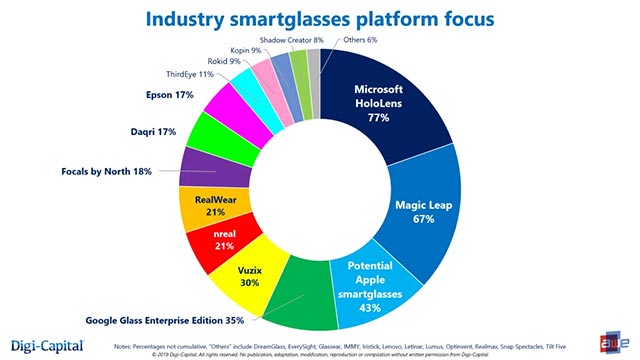
- Apple is forced to notify users before releasing updates that affect the battery
Apple and smart glass market
- 5 challenges in the smart glass market
- Microsoft HoloLens and Magic Leap
- Apple and its own direction
- Will Apple be the winner again as it did in the smartphone world?
5 challenges in the smart glass market
Smartglasses (smartglasses) are a new market, which has a lot of potential for growth but also includes many challenges for businesses, especially in terms of products. Like other modern technology products, a smart glass that wants to be positively welcomed by the market must ensure a few factors: Quality perfection (for example, Apple products, which is known for its excellent finishing quality, good battery life (ensuring a minimum of 1 day of use), mobile connectivity, richness of support application ecosystems, and last The same is the selling price.
Until a major breakthrough in battery manufacturing technology was actually introduced, AR smart glass models could be said that favored independent, compact design, while still having to 'carry on' tasks. Heavy AR will be difficult to provide seamless use throughout the day without a removable battery. Such a battery-like design is often suitable in an enterprise environment, while it is more difficult to sell to individual consumers. In addition, history has shown that there is always the existence of great risks for developers and businesses in building a supporting application store for new platforms, at least until when the application basically accomplishes the set objectives and initially received positive feedback from the community. This is one of the problems that all new technology platforms face.
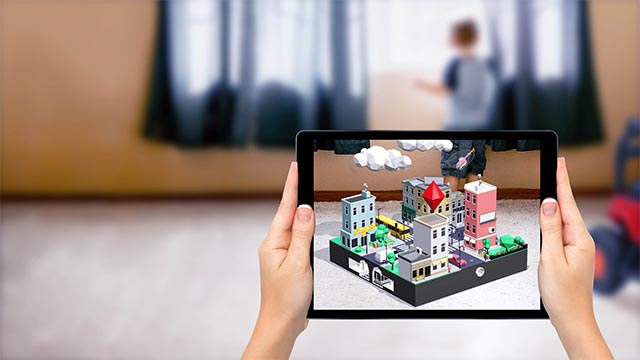
- Apple launched the MacBook Pro upgrade with many notable options
Three years ago, through analyzing these five challenges in the context of Apple's development roadmap, Digi-Capital for the first time predicted that Cupertino will launch smartphones that come with it. Smart glass in 2020. However, until now, Tim Cook and his team still seem to be in a mess or in connection with iPhone sales and at the same time not have any information. Which indicates that a smart glass with a defective apple logo will be released next year.
Even in the case of Apple smartglass launched as a peripherals for high-end smartphones, not everyone is willing to give up extra money or carry many 'clickable' devices. However, if the product launches in 2020, analysts believe that Apple can still sell several tens of millions of Apple smartglass worldwide until 2023, which can also help promote pushing business needs in encouraging employees to use their own technology equipment. In fact, independent smart glasses can completely become a replacement device for smartphones on a global scale.
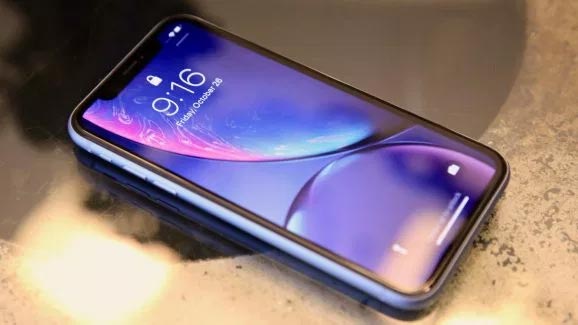
- See the speed and duration of iOS 12.3 battery with iOS 12.2, should the upgrade be done?
Microsoft HoloLens and Magic Leap
Smart glass is still mostly focused on the business segment. In which the number of devices used in the enterprise is not too much and there is a clear differentiation from tens of thousands (eg Vuzix, Google Glass Enterprise Edition) to hundreds of thousands (Microsoft HoloLens 2 with contract 100,000 Smart glass products for the US military). Digi-Capital predicts smart glass for business will scale up to millions of users by 2023, and this result is driven mainly by Microsoft, Google and a variety of start-up companies. other potential. Meanwhile, Magic Leap is a real start-up company that focuses heavily on individual user segments as both creators and developers (and businesses).
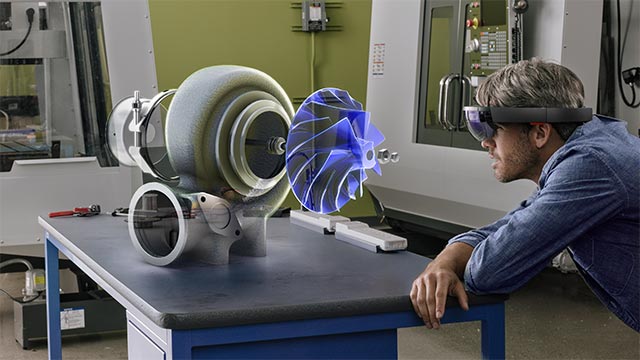
In that context, it is not surprising that Microsoft HoloLens and Magic Leap are rated by analysts as the two most important smart glass platforms on the market today. So what about Apple's case? Although it does not own any product at the present time, this survey indicates that Apples Abhis could absolutely become a serious competitor if they chose to participate in this market.
- On iOS 12.3 iPhone Lock cannot change the ICCID code directly on the phone and this is a fix
Apple and its own direction
If any name can produce high quality smart glass products that resonate in the market, Apple must be one of the top names. Although there has been a lot of criticism about the creation and product design of smartphones in the past few years, the fact is that iPhones are still welcome everywhere in the world.
Unless Apple is in possession of a secret battery technology, which can provide an outstanding use of time, smart tethering-connected smart glasses can be a practical solution to the challenge. battery knowledge with current technology. Physically tethering through wires can be a solution that fills both iPhone and Apple smartglasses in terms of not only battery life but also connection quality (because the two products will be connected directly rather than over wireless connection). However, this is not consistent with Apple's peripheral development roadmap (eg Apple Watch, AirPods). Apple can choose to follow a wired path with proprietary lightning connectors, but wireless connectivity is of course much more convenient, especially in terms of flexibility.
Mobile connectivity will not be a big problem if the iPhone is included in the 'smart glasses cluster', unlike HoloLens and Magic Leap based on Wi-Fi. The impact of 5G on AR Cloud (3D data layer for the real world) when this connection technology becomes popular can become a factor that makes the difference.
ARKit is one of the technologies that brings fun, and opens up new avenues for iOS application development. ARKit (Apple ARKit) is the platform and tool for developing Apple's augmented reality application (AR) for iOS devices and now it's available on iPhone, iPad . This platform has been set set up to reach 3/4 billion devices this year and up to 800 million devices by 2020. However, the challenge for mobile AR is important use cases, to transform the user experience according to The way users care and that cannot be done in any other way. Pokémon Go, messaging filters and Google Maps are a start, but more important use cases are also needed.
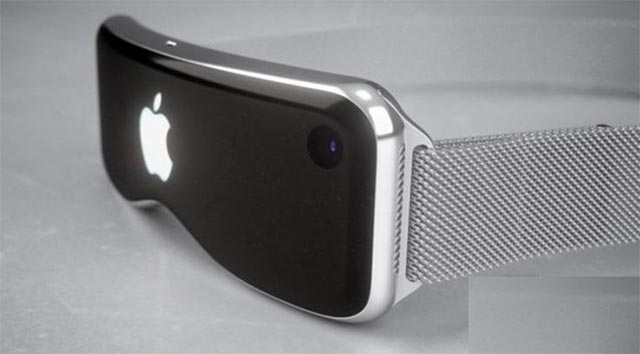
- The scary ghost in The Ring comes out of the TV screen thanks to ARKit technology
In fact, Apple Glasses can still receive great support from AR developer ecosystem with 3 years of experience: ARKit, as of the end of 2020. It can be seen that this contributes to the reason why Tim Cook and Apple have been constantly focusing on ARKit since 2017. Digi-Capital's analysis also shows the average revenue of ARKit per user (ARPU ) twice as high as Google's ARCore. At the same time, ARCore currently also possesses less than ARKit 400 million basic installations. Along with Apple's integrated ecosystem, this could help reduce developers' concerns about investing in a new Apple peripheral platform, especially after the Apple Watch did not grow as well. initial hope.
Apple has many years of experience with pricing for iPhone peripherals, so Apple Glasses, when released, could become Apple's most expensive peripherals (meaning it will be more expensive than Apple Watch. , and only slightly cheaper than the iPhone). This may limit sales in the range of 12 to 18 months after the product launches, but Apple will follow its typical pricing route to attract the majority of consumers when the market plays. growing and gradually being shaped.
Another advantage of a clever approach to turning smart glass into a smartphone-connected peripherals is to reduce the investment costs of production materials compared to all-in-one solutions (eg : HoloLens) or 'breakout-box' (eg Magic Leap) by sharing computing power, dealing with the iPhone itself. This is another natural advantage of Apple, compared to competitors who do not have smart phone products, and help the company gain a potential advantage in terms of selling prices. Of course this advantage can also be shared by other smartphone manufacturers (for example, Samsung) if they also launch similar smart glass products.
- Microsoft introduced HoloLens 2 AR, emphasizing comfort and wearable feel, for $ 3,500
Will Apple be the winner again as it did in the smartphone world?
It is still too early to talk about the success or failure of the smart glass market in general, but many big names in this area are starting the return on investment (ROI) cycle. This is generally an encouraging fact for Microsoft, Magic Leap and many other smart glass manufacturers, but things don't stop there.
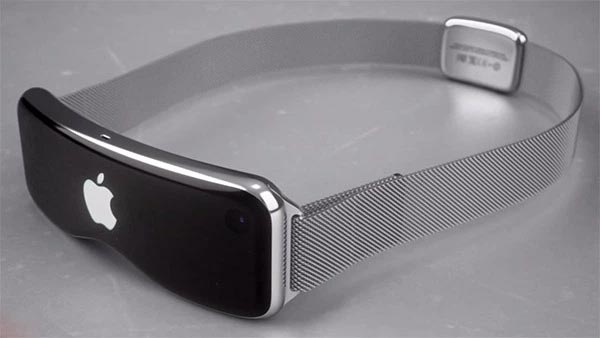
- HTC announced the Vive Focus Plus independent VR headset, scheduled for sale in the second quarter of this year
Surveys by Digi-Capital and AWE, including all major AR / VR platforms on the market today, not just smart glass, and thanks to that, Apple attracted 43% of interest from the public. co-opted for a smart glass 'product' that they never revealed any information. Thus, it is not unreasonable to speculate that once Apple actually launches the product, the interest and support that the market gives them is even bigger than that. Looking at the statistics, by attracting 77% and 67% of interest from the market, HoloLens boss Alex Kipman and Magic CEO Leap Rony Abovitz should definitely be excited about the initial successes. they reaped today, but Apple, with its huge number of fans and fame, could become a formidable challenge in the smart glass market in particular and virtual reality. when they officially join the game.
You should read it
- ★ Microsoft, Snap, Facebook, Google, Apple, Amazon and the race to 'something that can replace smartphones': the glasses
- ★ The SOLOS smart bicycle glasses have just launched, causing fever
- ★ Google advises not to wear smart glasses while driving
- ★ Apple's version of Google Glass may be released in 2020
- ★ What's special about Apple's Vision Pro glasses costing $3,500 and how does it work?